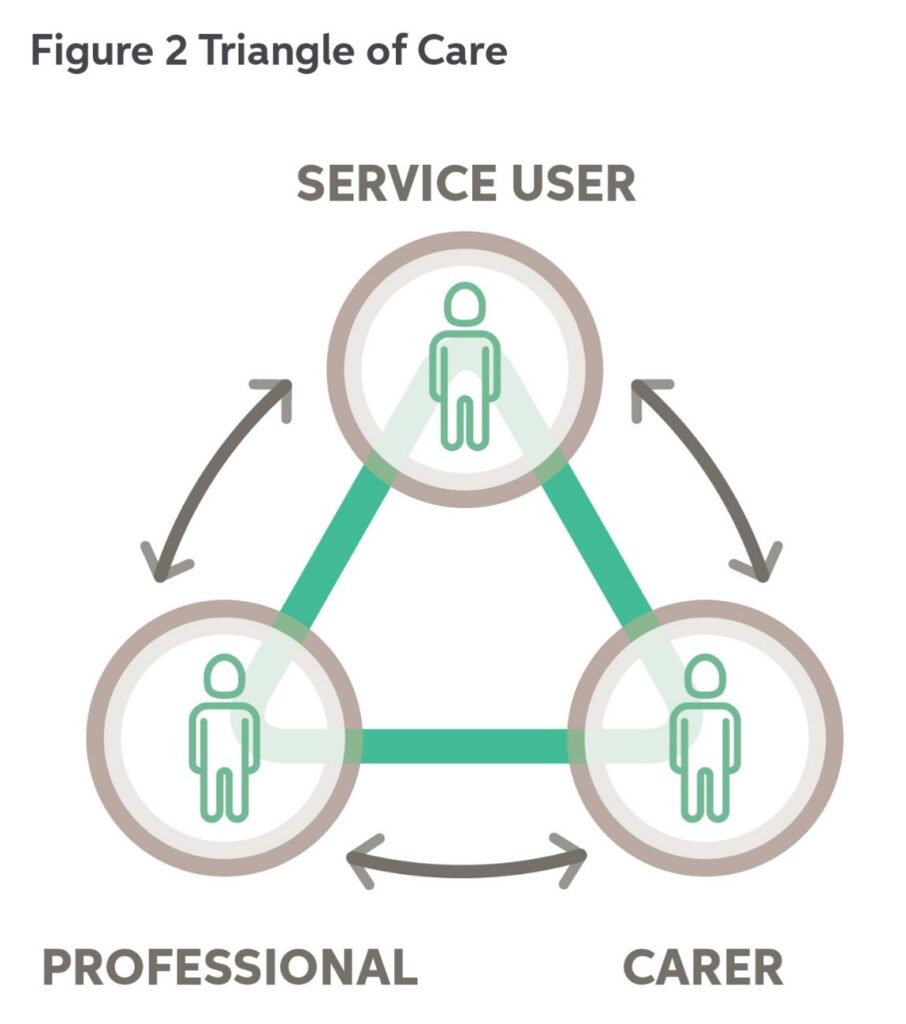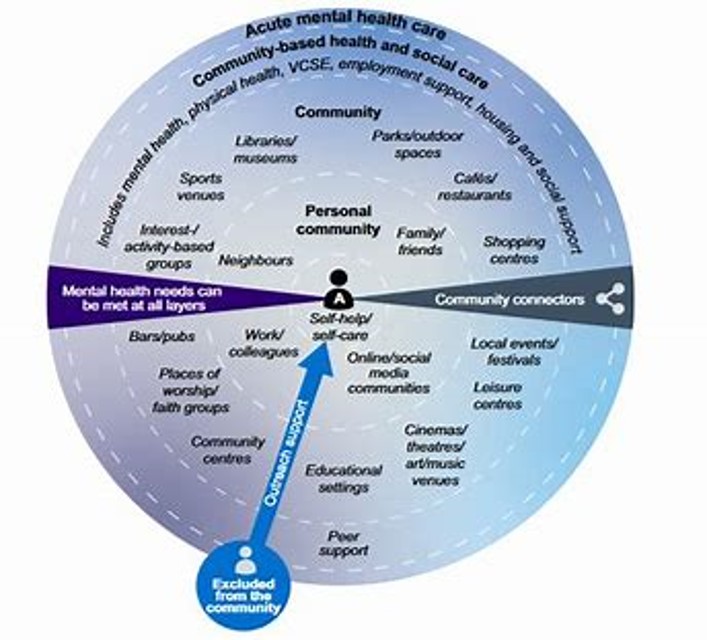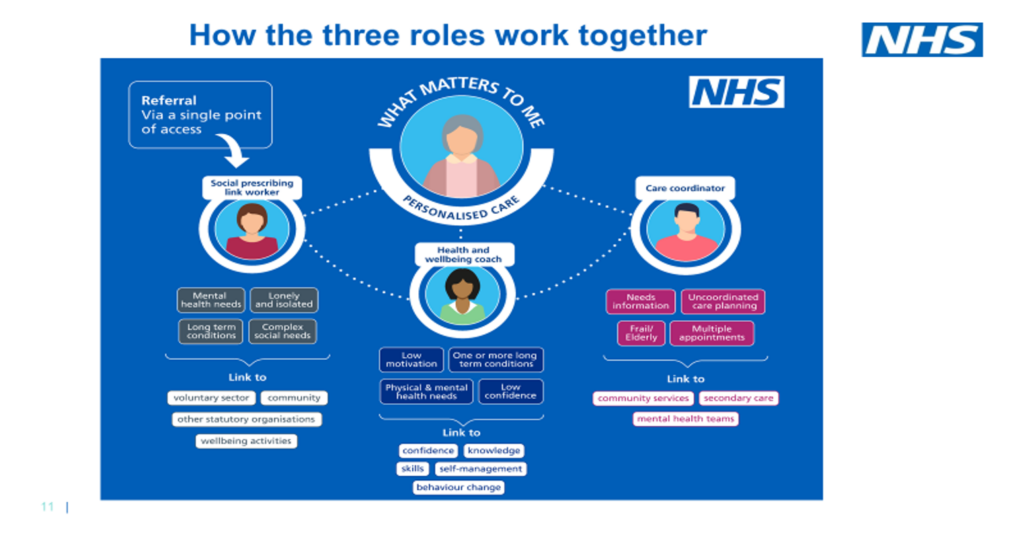Community Mental Health Framework
Sub-Topic 1
Skills
Below are the skills in this Sub-Topic:
- I am familiar with the terminology used in the community mental health framework and understand its relevance to service users and patients.
- I understand the concepts described in the community mental health framework and how they may relate to my work.
- I will look for opportunities to provide advice and support which may prevent further ill health including support with employment, financial management, housing, benefits, personal safety as well as those linked to healthier lifestyles.
Overview
The Community Mental Health Framework for Adult and Older People sets out how primary care (Primary Care Networks (PCN) and GPs), secondary care (hospitals), specialist care, social care, housing, voluntary sector and others who provide mental health services can work together in a seamless way, ensuring service users/patients are at the centre of service provision, ensure they are involved in their own care and support. There is also a similar framework for children and adolescents mental health (often referenced as CAMHS). This section deals with adult and older people’s mental health.
The diagram on slide 32 overleaf explains the triangle of care and how community mental health enables the individual to have access to mental health care where and when it is needed.
The framework also looks at the importance of addressing health inequalities in mental health care including access to services and decreasing inequality or variations in the provision of care. Whilst the framework looks at the support needed for several mental health conditions, it also recognises that those aged 18-25 and older adults may also require additional support (these are often referred to as the transition phases) as do those who may have co-occurring drug and/or alcohol-use disorders.
The framework also sets out the role of the following
- Social prescribing – the range of support available to people in the community which will support their mental and physical needs
- Individual placement and support – supporting those with poor mental health to find and retain employment
- Personalised care – shared decision making, which is based around the service user/patient, based on the choice of treatment/support and enables the individual to maintain and support themselves;
- Triangle of Care (see illustration overleaf) – the role carers can play in supporting the individual
- Trauma informed care – which explains how trauma (when people are in real or perceived danger) can impact on a person and how services can perpetuate or prevent the impact on a person and the importance of listening, understanding, responding and checking.
Slide 34 shows how three new roles support community mental health services work together putting personalisation into action.



Why is this important
The provision of community mental health services has changed over a number of years. However, access to health and social care is complex and particularly if you are a patient/service with poor mental health as well as a physical illness or long term condition (epilepsy, cancer, heart failure). The patient/service user may experience multiple assessments, care/treatment plans and support from many different health and social care workers.
Empowering people to become and stay well and less reliant upon support services is part of the changing nature of community mental health.
Experiencing poor mental health can impact on a wide range of issues. It may affect a person’s ability to remain employed, undertake normal day to day activities such as shopping or going out in general, managing their finances etc. However, being able to access community services is a vital part to regaining control and confidence, and aiding or maintaining recovery.
Your ability to draw on knowledge of the relationships between the wider mental health team, your role and other statutory and non-statutory services in the local community will ultimately assist in the provision of high quality care and support.
Skills ReviewSkills Review
Having completed this sub-topic I will understand the importance of these skills.
- I am familiar with the terminology used in the community mental health framework and understand its relevance to service users and patients.
- I understand the concepts described in the community mental health framework and how they may relate to my work.
- I will look for opportunities to provide advice and support which may prevent further ill health including support with employment, financial management, housing, benefits, personal safety as well as those linked to healthier lifestyles.
